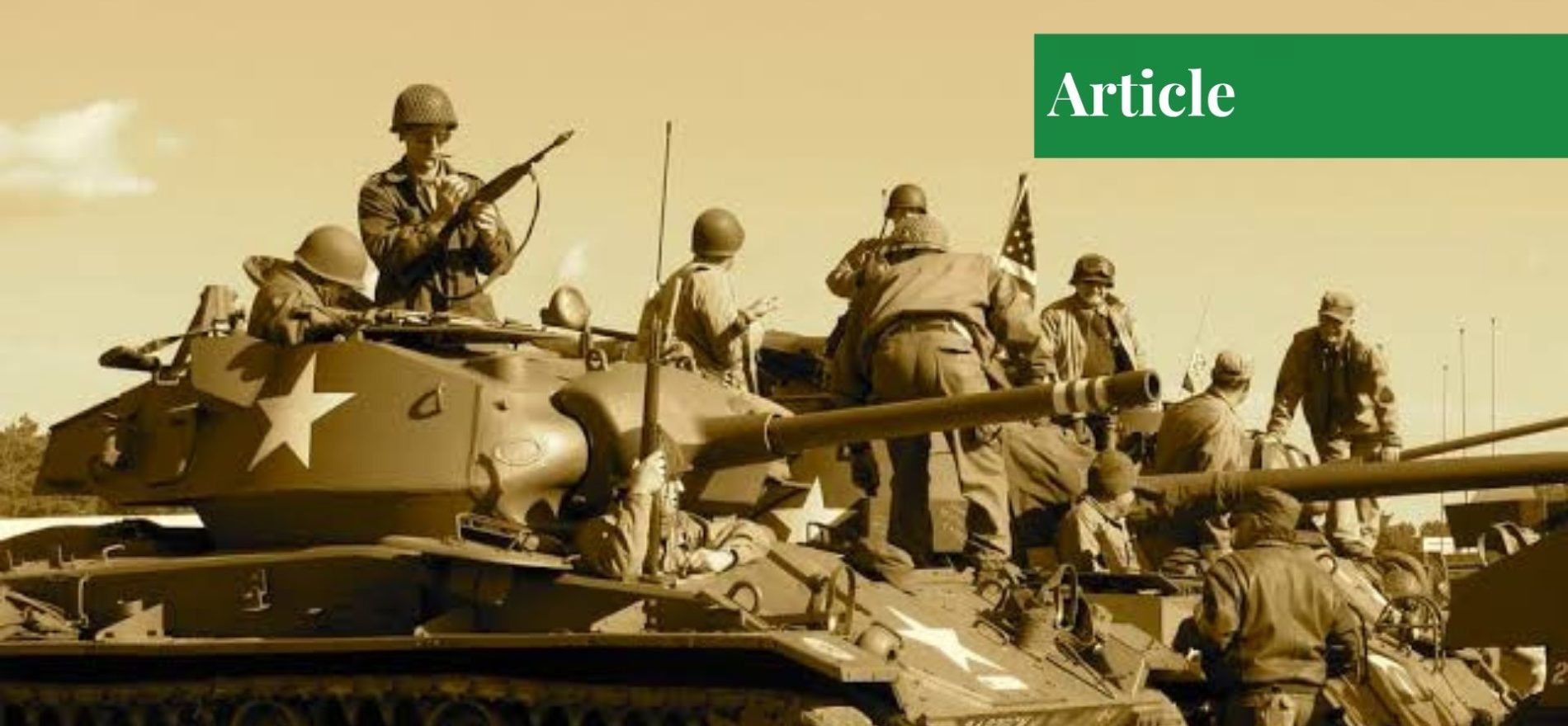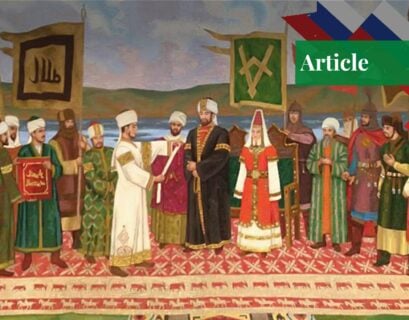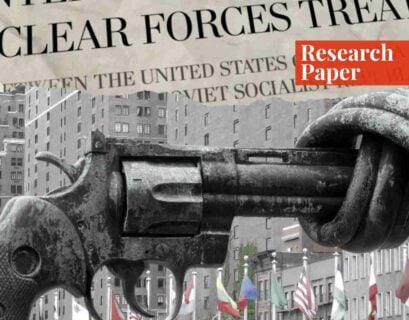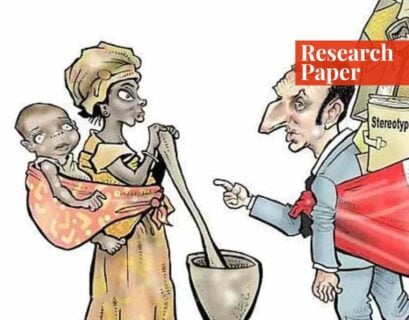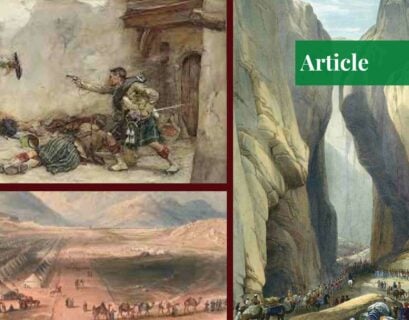Mohammad Mudasar Laghari is a high school student pursuing his HSSC in Hyderabad. His areas of interest include history, political theory, international relations, and world affairs.
The Deadliest War
The Second World War was the deadliest of all the conflicts to have ever occurred in human history. It is said that about 70-85 million people lost their lives in this war. Men, women, and children were massacred indiscriminately, systematic mass executions of about 6 million Jews (most of them being Polish) were carried out by the Nazis, the European economy collapsed, and millions were left homeless for no obvious purpose. Indeed, the Second World War changed the course of the world history for centuries to come.
Many factors contributed to the massive conflict, mainly the ambition of Germany to overthrow the contemporary status quo as it was set up by the Treaty of Versailles. The road to the Second World War consists of gradual developments happening over the course of 25 years. However, the invasion of Poland, as a result of Britain and France’s policy of appeasement, holds immense significance as it is undoubtedly the event that triggered the Second World War. Let us take a look at how things evolved from the humiliating defeat of Germany in the Great War to the start of the Second World War in 1939.
By virtue of the Treaty of Versailles, nine new independent and sovereign states were founded by the allies based on soil that previously belonged to Germany, Austria-Hungary, and Russia. Poland and Czechoslovakia, the immediate neighbors of Germany, happened to be two of these new nations. Interestingly, both countries had significant ethnic-German populations.
Hitler believed that parts of these countries that were dominated by ethnic Germans, were a natural part of Germany; thus, he demanded that Sudetenland, the northern part of Czechoslovakia, be made a part of Germany. These circumstances gave birth to the Munich Agreement, also known as the Munich Betrayal.
The Policy of Appeasement
The Munich Agreement
After the Fuhrer, Adolf Hitler, had successfully annexed Austria, his eyes were now all set on Czechoslovakia. Hitler demanded the cession of Sudetenland (the northern part of Czechoslovakia) and threatened to wage war should Sudetenland not be handed over to Germany by peaceful means.
As mentioned earlier, Czechoslovakia – especially the province of Sudetenland – had a large ethnic-German population. Therefore, albeit Hitler was covetous of Sudetenland for its territory, he had always dreamt of unifying all the Germans into a single nation. Hitler insisted that this would be his last territorial claim in Europe.
On 29 September 1938, the supreme leaders of Germany, Italy, France, and Great Britain met in Munich to negotiate a peaceful solution to the crisis. Ironically, no Czech representative or diplomat was present in the conference room nor was anyone from the Czechoslovakian government consulted.

The Czechs had no say in the dialogue even when it was their very own territorial integrity and sovereignty at stake. Nevertheless, a consensus was reached and it was agreed upon by all the respective nations that Czechoslovakia is to surrender a large chunk of its northern territory – namely the province of Sudetenland – to Germany.
The British Prime Minister, Neville Chamberlain, believed this was a step in the right direction as Europe was keen on avoiding another massive conflict after the horrors of World War I. After coming back from Munich, on 30th September 1938, Neville Chamberlain proclaimed:
“My good friends, it is for the second time in our history, a British Prime Minister has returned from Germany bringing peace with honor. We thank you from the bottom of our hearts. Go home and get a nice quiet sleep.”
The Czechs were furious at first and fulminated against such a policy of continuous appeasement with regard to Germany, firstly with the annexation of Austria, and then once again with regard to the Sudetenland crisis. However, they surrendered Sudetenland to Germany once Britain and France gave the Czech government the ultimatum of either accepting the agreement or facing Germany all alone in an imminent war. The Czechs were left with no other alternative. Hitler once again got what he desired and Sudetenland was annexed by Germany.
Failure of the Munich Agreement
Prime Minister Neville Chamberlain was proved wrong when he deemed the Munich Agreement a landmark pact, for his endeavor of bringing long-term – or perhaps, short-term – peace to Europe went in vain once Adolf Hitler broke the commitment after just a mere 6 months by invading the Czech provinces of Bohemia and Moravia.
Following the invasion of Hitler, the Kingdom of Hungary too made territorial claims on Czechoslovakian soil; their justification too – same as Germany – was reuniting ethnic Hungarians who inhabited the southern parts of Czechoslovakia with mainland Hungary. Germany and Fascist Italy upheld the territorial claims of Hungary, awarding the kingdom the southern territories of Slovakia which were densely populated by people of Hungarian ethnicity.
Furthermore, Slovakia, formerly a province of Czechoslovakia, emerged as an independent Catholic state which remained a client state of Nazi Germany throughout the Second World War and became a member of the Axis powers. Nevertheless, even after Hitler went back on his word by invading Czechoslovakia, no military retaliation whatsoever came from Britain or France. The accommodation under the policy of appeasement further strengthened Hitler’s position. However, this was just the beginning, as Hitler’s ambitions weren’t going to cease anytime soon.
The Ticking Bomb
As hostilities kept spiraling, the time bomb of the Second World War was ticking at a rapid pace. Each action and statement intensified that bomb which was going to blast soon enough. By then, everybody had realized that, once again, war was approaching the doorsteps of Europe and the world kept running out of time, after which it was impossible to defuse that bomb.
Hitler’s next target was inevitably Poland. By now, Poland was partially surrounded by German-controlled territories and found itself in a vulnerable position. Great Britain and France were resolved on averting another war, repeatedly conforming to whatever territorial concessions he demanded, and with Germany once again remilitarized and armed to the teeth, Hitler’s confidence had quadrupled.
With the Allies neither prepared nor willing to engage in another conflict, Hitler calculated – correctly as it turned out – that he would be able to invade and conquer Poland before the Allies could mobilize their armed forces and make any attempt whatsoever to stop him. Everything seemed perfect. Would he miss such an opportunity? Absolutely not!
An Array of Agreements, Pledges, and Renunciations
By now, Britain and France had had enough of Hitler as they realized that if they still maintained a policy of appeasement, Hitler would become an even greater threat to the status quo. Great Britain and France then made a pledge to declare war against Germany should it invade Poland. This later became known as the “Polish guarantee.” In response, Hitler renounced the German-Polish Non-Aggression Pact and the Anglo-German Naval Agreement, declaring both of them null and void.
Poland was a sort of buffer zone between central Europe and the Soviet Union. Hitler knew well that if he attacked Poland, he would probably be inviting the Soviet Union to war. Joseph Stalin knew well the fact that the West did not like him any more than they liked Adolf Hitler. Thus, he anticipated that in a war with Germany, the West would be happy to let the communists fight the Nazis all alone.
Therefore, considering the circumstances, both of them (Hitler and Stalin) decided to pursue their own vested interests in collaboration with each other. On 23rd August 1939, the Molotov-Ribbentrop Pact – also known as the Nazi-Soviet Treaty of Non-aggression – was signed. By virtue of this agreement, Germany and the Soviet Union were obstructed from attacking each other for 10 years. This development caught the Allies by surprise, as they were counting on the Soviet Union to contain Germany’s eastward expansion.

What the West did not know, however, was the fact that both powers had secretly divided the territory of Poland with mutual consent. When Hitler invaded Poland from the West, Stalin attacked Poland from the East; thus, eastern Poland was occupied by the Soviet Union and western Poland came under the control of the Nazis.
This would be Hitler’s final move before invading Poland. He could now do so without worrying about any retaliation on the part of the Soviet Union. This short period before the start of the Second World War largely involved signatures, documentation, and declarations. Little did they know that they were luring along with themselves virtually the whole world to the deadliest war mankind had witnessed to date.
“Bombs Will Be Met by Bombs”
On 1st September 1939, Hitler invaded Poland. While addressing the Reichstag, he stated, “This night for the first time Polish regular soldiers fired on our territory. Since 5:45 a.m. we have been returning the fire, and from now on bombs will be met by bombs.”
He had struck the final blow which had triggered the Second World War, as Britain and France were now convinced that pledges of war and political pressure were not going to deter the Fuhrer. On September 3, 1939, Great Britain and France honored the pledge they made to the Poles by declaring war on Germany with Neville Chamberlain stating the following:
“I am speaking to you from the cabinet room at 10 Downing Street. This morning the British ambassador in Berlin handed the German government a final note that unless we heard from them by 11 o’clock that they were prepared at once to withdraw their troops from Poland, a state of war will exist between us. I have to tell you now that no such undertaking has been received, and that consequently, this country is at war with Germany. You can imagine what a bitter blow it is to me that all my long struggle to win peace has failed.”
Albeit the Allies were technically at war with Germany, not much action took place in the first 8 months of the war. This was because the Allies needed time to make war preparations and mobilize their armies. In the meantime, they had expected the Polish army to resist Germany until the Allies came to their rescue.
Although the Polish army was no match for the armed forces of Germany, one would still expect it to put up stiff resistance for a good few months. However, Stalin began making his own plans to occupy his portion of Poland which was agreed upon by him and Hitler. So, on 17th September 1939, the USSR attacked Poland from the East.

The Polish army was significantly overmatched by the profoundly potent and highly mechanized armies of Nazi Germany and the USSR. Warsaw, sandwiched between two first-rate powers, was unable to cope with attacks incoming from both fronts, and by 29th September 1939, Germany and the Soviet Union had secured absolute control of Poland. The Second World War was underway.
How Did Occupation Affect Peoples’ Lives?
It is said that about 5.5 million Polish people died under Nazi rule, half of them being Polish Jews. The Nazis had alleged that the Poles had oppressed ethnic Germans living in Poland and it was for this reason that they had every right to avenge their brothers and subject the Poles to severe torment. Furthermore, the Nazis believed that all the non-Aryan races were inferior to the Germans who were of Aryan origin, and consequently racially/ethnically superior.
With anti-Semitism being one of the main features of Nazi racism, Germany carried out systematic mass executions of Polish Jews and forced them to live in ghettos. Besides, all of Poland was suffering from abject poverty, and food and commodity prices went sky-rocketing. The following is an extract from an account of events in Poland from September 1939, to March 1940:
“The lack of food is best illustrated by the dramatic account related to me by the girls, concerning a carthorse which dropped dead in one of the main streets of Warsaw. As soon as the carman disappeared, apparently, to seek some help, the dead horse was carved up by hundreds of people who, at the end of ten minutes, left a bare skeleton on the pavement.”
Such was the situation of Poles under Nazi rule. The country would remain under Nazi control for six years until the defeat of Germany in 1945. Even after then, unfortunately, the country didn’t emerge as an independent, sovereign state but was instead “liberated” by the Soviet Union by the end of January 1945. The country would remain under Soviet occupation until the Poles overthrew the communist regime, and on 27th October 1991, the first entirely free Polish parliamentary elections took place. The country has remained independent ever since.
If you want to submit your articles, research papers, and book reviews, please check the Submissions page.
The views and opinions expressed in this article/paper are the author’s own and do not necessarily reflect the editorial position of Paradigm Shift.
